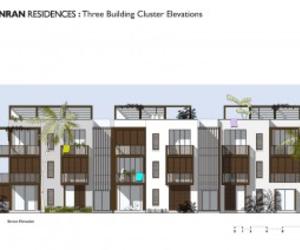First golf project in Cuba gets go-ahead
- Submitted by: lena campos
- Business and Economy
- 05 / 15 / 2013

The planned golf course development of a British investor group near Varadero became the first to be officially announced, ahead of several more expected to get a go-ahead from the Cuban government.
Tourism Minister Manuel Marrero told the BBC that the Cuban government had reached a formal agreement with London-based Esencia Group, which plans to begin construction of the $350 million Carbonera project in 2014.
A short-lived experiment a decade ago with condo sales in Havana aside, this is the first time since the 1950s that foreigners are allowed to buy, own and sell real estate in Cuba.
“We’ve been working on this for seven years, step by step, so we’re very excited it’s finally going to happen,” Esencia CEO Andrew MacDonald told reporters on a tour of the 420-acre site.
Plans for Carbonera include a gated community with 650 apartments and villas, hotel and a country club, as well as a spa and yacht club, all around a golf course just east of Varadero, Cuba’s No. 1 beach resort.
Without citing its sources, the BBC reported that another golf project, with Chinese investment, is expected to get the go-ahead by the end of this year, followed by other projects funded by Spanish, Vietnamese and Russian investors. Marrero said at the FITCuba tourism fair in Varadero that the government is in talks with 10 foreign consortia.
Cuba is planning to build “at least” 11 residential golf course resorts throughout the island, Marrero said. Last year, tourism officials said that Cuba was planning to build 13 golf courses by 2020; two years earlier, Marrero announced plans for “up to” 16 golf courses.
Plans for four golf resorts collectively worth more than $1 billion have been ready to go since 2011. In summer of that year, Cuban officials concluded negotiations with four foreign consortia — Esencia Group, British Virgin Island-based Coral Capital Group, Canada’s Standing Feather International, and a Spanish investor group that plans to build a golf resort at Las Alturas in western Cuba — the Council of Ministers approved their respective projects, and the foreign companies formed joint ventures with Cuban state company Palmares S.A. Another Spanish developer, La Playa Golf & Resorts S.L., is planning to build a mega-resort on the western tip of the island, but it apparently hasn’t advanced as far as the other four groups.
One of the four golf projects entered limbo in fall 2011, when Cuban law enforcement arrested the principal of Coral Capital Group Ltd., which had planned to build a resort just east of Havana, and closed the company’s Havana office amid an investigation into corruption.
Some laws relating to foreign real estate ownership have already been effective for two years, but significant ground rules have yet to be published.
Decree-law 273, published in the Gaceta Oficial No. 33 in 2011, modifies articles 221 and 222 of the 1987 Surface Law in Cuba’s civil code. Article 221 now stipulates that the state must issue a “surface right” title for each property subject to usufruct, including information about the property’s limits, conditions of use, and the time period, structure, nature and destination of the buildings or the specific activity planned for the property. Article 222 specifies that state-owned land can be leased for up to 99 years; stipulates that, in case the land is leased for a shorter period, the contract can be extended to up to 99 years; and states that the state can sell properties to Cuban companies planning to build tourism-related homes or apartments on the land.
Even though Cuban laws now allow foreign developers and condo buyers 99-year leasehold arrangements of the land, which banks consider equivalent to ownership, one of the consortia has said that Cuban officials agreed to let it sell residences in perpetuity.
Also, in fall 2011, the government published some regulations regarding importing and exporting of personal goods and cars by foreigners and the visa status of foreign real estate owners.
However, many other ground rules are still unclear. Most of these rules are politically delicate, involving issues such as whether Cubans or Cuban Americans will be allowed to buy properties, and how — or whether — the government will avoid flipping.
Source: CubaStandard.com
Comments